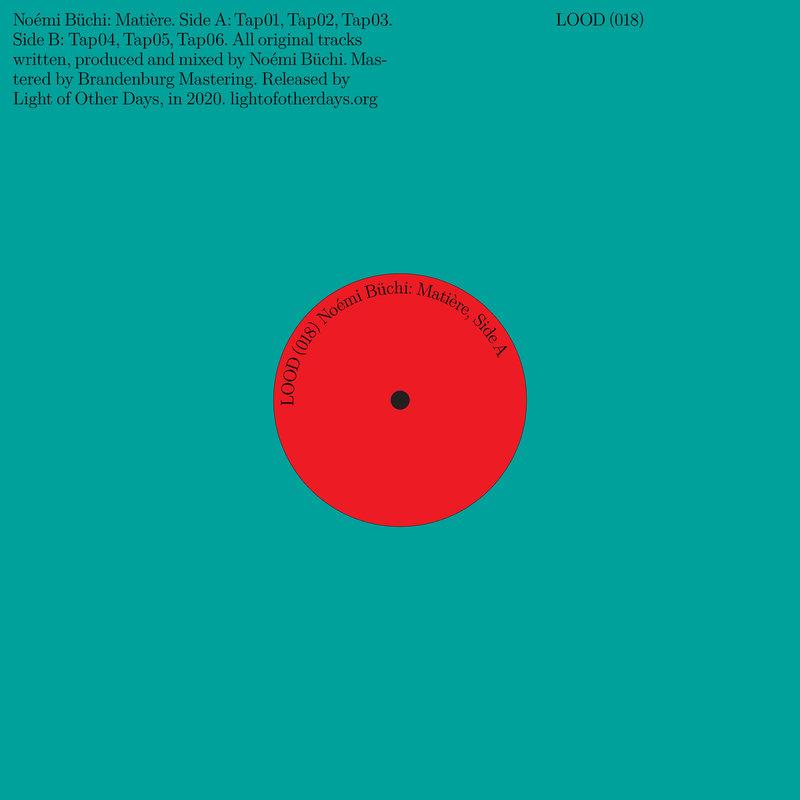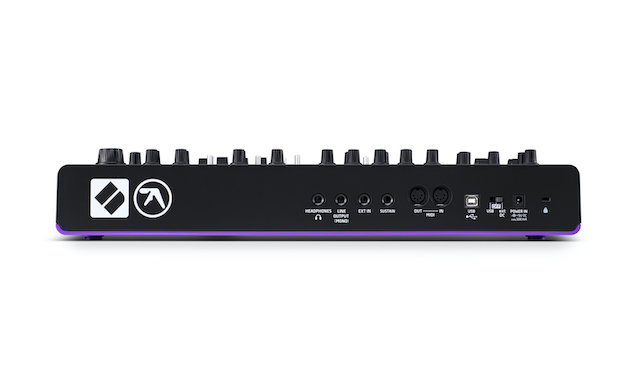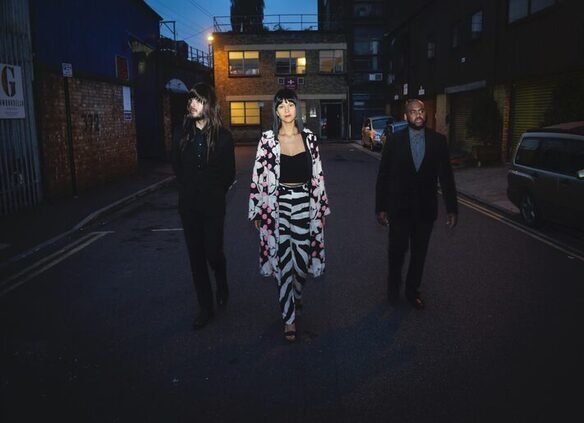Lockdown has been a funny time and for a long while now I've wanted to write about how I got lost in modular synthesis in the first wave of lockdown (it was my way of meditating) and it's something I aim to write on in time but whilst thinking about this Swiss record label sent a new release by a new artist (to us) / composer by the name of Noémi Büchi. The record has just been released and it seemed an ideal time to talk modular process with someone that interprets their music in this way.
By introduction modular synthesis is basically if you imagine someone taking the component parts of a synthesizer (the voice, the filters, frequency generators and on) and made all of these potential parts into small modules which you can then connect with with patch cables. You can basically dream sound and make it. Personally speaking it can go from incredible to a total noise to incredible in a short space of time but what makes it wonderful is how tactile it is. It all happens within your fingers. There are some really wonderful artists developing music in this sphere so it was a joy to chat with Noémi to get her take on this...
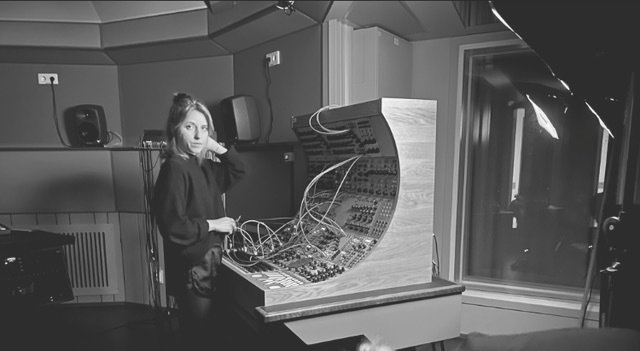
You have a new release based on your modular system. Tell me how you got into this kind of music making?
I've always been very curious, especially when it comes to music or art in general. I like discovering new sounds and applying new methods that also challenge and advance me. It's like a never-ending search for new musical languages.With the modular system, the sound in itself was incredibly fascinating for me from the beginning and I spent a long time looking for my ideal modules that could generate clear and fine sounds. That was clearly my main focus. Since my heart lies in playing the piano and I feel at home with keyboards, the modular system without an external keyboard was a challenge that greatly expanded my horizons and my musical understanding. This release is my first attempt with such a system. I see it more like a collection of etudes than a finished product.
Were there any special influences or YouTube videos that you watched?
My main influences were mainly friends of mine, especially a good friend and fellow student Nicolas Buzzi. With his Buchla 200e system he aroused my curiosity for machines like this and I wanted to know how to deal such machines. I am also a big fan of Eliane Radigue and the pioneers of electronic music who used the first modular synthesizers.I used YouTube videos to watch tutorials about my modules or to check the sound of certain modules before I spend my whole fortune ...!
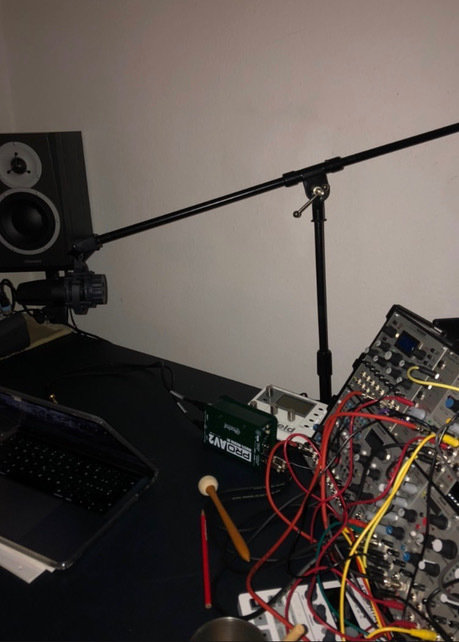
What is your work process like? Do you go to the system with an idea in mind, or do you patch and play and see where you end up?
I kept my work process like with improvisational piano playing. I sit down when I can concentrate enough and start generating sounds, making combinations, creating rhythms, etc. And then I look where this little journey takes me. My approach is that I let the sounds control me rather than want to control the sounds. I work and compose simply by listening, listening to the sounds. They guide me and then I somehow unconsciously know where I am going.
Are they just modular jams, or are you cutting and including the computer in the process?
At the end of a collection of improvisations, my ratio can finally take part! Yes, exactly, I cut, process, turn, extend, delete, filter… all sorts of things with the computer and also add other sounds like own recordings when I feel it fits. I love the computer as my main instrument. It allows me to realize all my fantasies without restrictions.
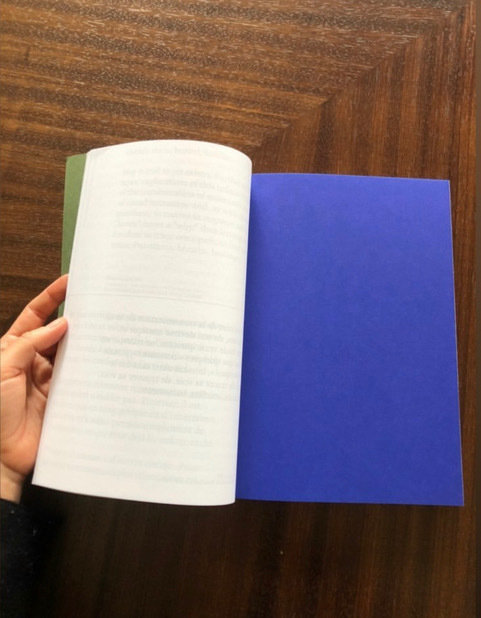
How did the release with Light Of Other Days come about?
The label Light Of Other Days asked me for a long time if I would like to publish something with them. Of course, I immediately agreed and was very happy about it. And I'm looking forward to more ... Soon to realize my new musical ideas. My head and my musical thinking is already somewhere else and much further.
There's one thing about modular people when they seem to never stay on their same system for long (mine changes quite a lot) ... what are your plans for your system?
Mine has changed a lot and constantly over the past two years. That is part of the game. But I don't want to get stuck in this spiral. As I said, I love the sounds of my modular system and for now it's good as it is, as I expand with other tools and instruments. I think people have the tendency to always want to change too fast and they don’t really explore what they have. My opinion is that you can do a lot with very little, there are actually infinite variations of everything. That's why I think you don't always have to change everything immediately. It is better to put the focus completely on something and try to achieve something with it. After all, it's all about music and the machinery of tools is secondary. I'm not interested in gear for itself. It is a sound source that I am adding so that I can satisfy my fantasies and new ways of playing that I really like. The patching and this direct contact with electricity has a very calming effect on me.The piano, for example, will find its place more and more in the future.
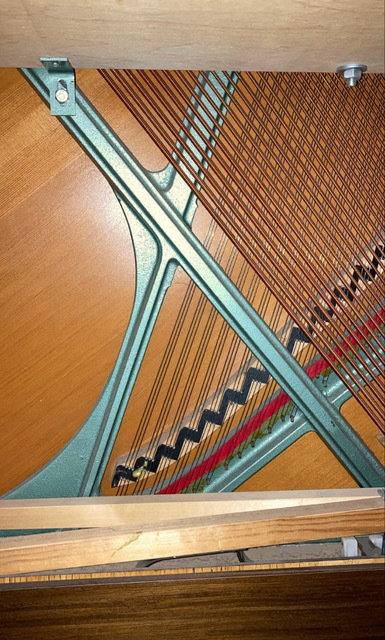
One of the most refreshing parts of the modular scene is gender equality ... Why do you think that is?
I think it's good that this topic is generally taken seriously at the moment (not only in the modular scene, but also in art in general) and women can have an equally loud voice. I think it has been established now and many young women finally had the courage to feel their way around such matters and finally to let go of this stupid cliché of women and technology…!
What is your opinion of the lack of chordal skills in modular synthesis. Obviously people are working on it now, but since they are unable to make chords, interesting paths arise for me ... What do you think?
That was a difficult thing for me at first, because as I said I work with keys. But it all depends on how you hear and what you want to hear. In electroacoustic music, for example, chords don't necessarily play a central role. Rather, harmonic connections arise through the perception of spectral combinations; one thinks more spectrally than harmoniously. And you let yourself be guided by the "timbre" of the sound.So depending on the approach, it can be more or less difficult or exactly what you want. So I don't see it as a defect. It is a system that works in its own way, a bit like an independent microsystem and you should get involved with the instrument and draw something from it that is possible with it.
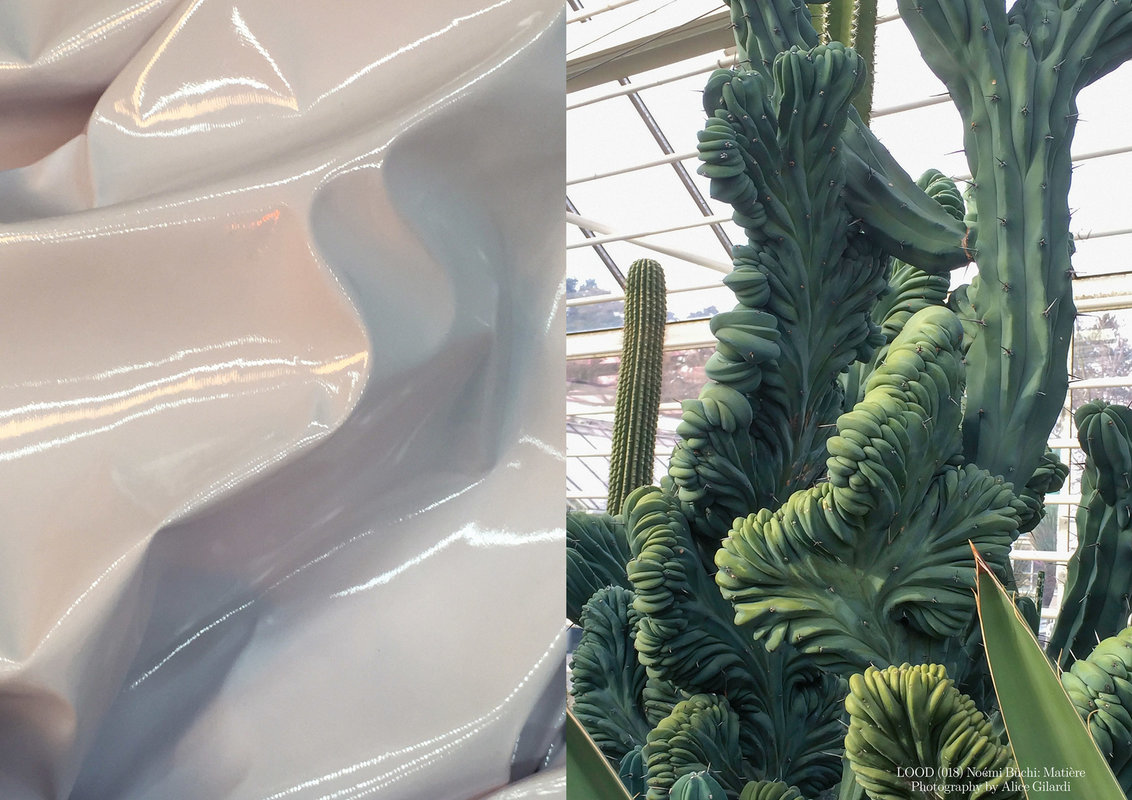
What have you got planned next?
I have a lot of different projects in the pipeline, but it's too early to announce. At the moment I'm in the creative phase, working on my ideas and have many new interesting musicians and artists around me with whom I plan wonderful things.But a second, totally different album is definitely on its way ...
How are you coping with lockdown?
I have seen the general situation as an opportunity since the beginning, along with all (especially financial) difficulties. The opportunity to finally not always have to be everywhere, and maybe to discover new things in everyday life that I have never done before and that can give me new kinds of inspiration. But also the fact that you do "nothing" and maybe produce less.. That's OK. and I think it is good for all of us to look for alternatives and ask ourselves new questions in our own lifes. I have more time for long walks and meditation. That helps me to be able to approach my musical activity with less stress.
Thank you.
